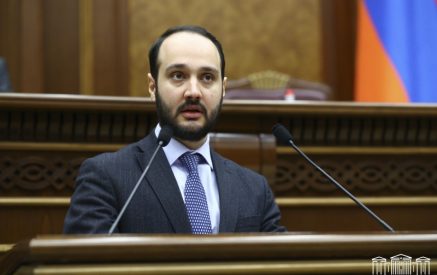As Armenian businesses reopen following the long coronavirus-induced shutdown, finance and business leaders (F&BLs) are coming to terms with a new business environment of lower anticipated revenues and reconfigured workplaces. Yet, companies still face a sceptical workforce who continue to be worried about returning to the workplace safely.
According to COVID-19 joint study by the Ministry of Economy of the Republic of Armenia and PwC Armenia, most F&BLs (80%) across all territories expect a decrease in revenues and profits. Even in countries with a more optimistic outlook, F&BLs take it as a given that the economic impact of the COVID-19 will reduce revenues and profits, with F&BLs in Armenia (60%), Switzerland (80%), Denmark (73%) and Germany (66%) all reporting that they expect to see a decrease.
“COVID-19 Joint Study was prepared only for the Ministry of Economy of the Republic of Armenia and exclusively for tracking intentions and priorities of Armenia’s financial leaders on COVID-19 outbreak with the agreed terms of the Ministry of Economy”, said Avag Avanesyan, Deputy Minister of the Ministry of Economy of the Republic of Armenia.
The survey findings suggest that the urgency to reduce expenditures and cut costs is still relevant. Of those F&BLs across all territories who say they are planning cost containment measures, capex investments are the most likely to be deferred or cancelled, led by F&BLs in Mexico (97%) and Armenia (75%). Middle East F&BLs indicate they are more likely to consider layoffs, in line with the fact that they are more likely (70%) to cite workforce investments being cancelled or deferred. In Armenia, this percentage is 38%. Capex is also the top choice to be deferred or cancelled across industries, led by industrial manufacturing and automotive F&BLs at 93%.
Read also
Other bright spots include the confidence of businesses in their ability to protect their workers. In fact, nearly two-thirds (64%) of survey respondents are “very confident” their company can help create a safe workplace environment for employees and reconfigure work sites to promote physical distancing (55%). In Armenia, these measures were mentioned by 70% and 20% of respondents, respectively.
“Given the unprecedented nature of this global pandemic, it is clear that workers are very worried about being able to stay healthy and safe as they are asked to return to their offices and worksites,” said Inga Shakhnazarova, PwC’s Armenia Clients and Markets Leader. “The most important thing business leaders can do to address their employees’ worries is to communicate frequently and transparently about how they are working behind the scenes to keep them safe, healthy and employed.”
Significantly, relatively few global F&BLs (18%) say they plan to defer or cancel investments related to digital transformation. At the industry level, this ranged from 24% of energy, utilities and resources F&BLs to just 11% technology, media and telecommunications F&BLs. This overall reluctance is unsurprising, given that digital transformation stands to play a large and critical role in the latter stages of the mobilise-stabilise-strategise continuum of crisis response—especially as organisations accelerate automation or other new ways of working on-site, consider contact-tracing technologies to ensure workplace safety and look to create more integrated and tech-enabled supply chains.
PwC has created Check-In with Automatic Contact Tracing — a tool that allows companies to help quickly identify and alert employees who may have come into contact with a co-worker at the workplace who has tested positive for COVID-19.
“As more companies reopen, F&BLs are coming to terms with a new reality and managing their expectations accordingly,” said Alexey Rusanov, PwC’s Armenia Managing Director. “We are seeing many leaders begin to pull back from drastic cost containment measures as they figure out how to operationalize their businesses in a new environment that must take into consideration the calculated risks of operating during this crisis.”
Limitations in analysing the Armenian FB&L responses:
The methodology applied in the current survey prescribes that a certain number of respondents should provide their answers from each territory (generally, at least 30). Since the number of responses from Armenia was lower than 30, we present the information of Armenian FB&L as indications and sentiments and not as a statistically reliable data. The users of this report should acknowledge that if the number of respondents had been higher, other results could have been received. You can view all findings and insights by visiting: https://www.pwc.com/am/en/publications/pwc-covid-19-cfo-pulse-survey.html.
Global results from the COVID-19 joint study by the Ministry of Economy of the Republic of Armenia and PwC Armenia capture the views of 870 CFOs in more than 24 countries and territories.
About PwC:
At PwC our purpose is to build trust in society and solve important problems. PwC is a network of firms in 157 countries with over 276,000 people who are committed to delivering quality in assurance, advisory and tax services. Find out more and tell us what matters to you by visiting us at www.pwc.com. PwC refers to the PwC network and/or one of more of its member firms, each of which is a separate legal entity. Please see www.pwc.com/structure for further details.
PR of the Ministry of Economy




























































